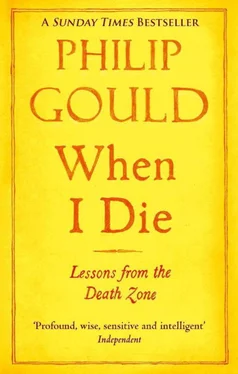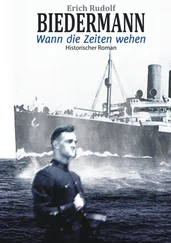I must also thank my colleagues at Random House for their support through these difficult times. Thanks to our authors who have become friends, to Nigella Lawson for bringing smoked salmon and bagels to feed everyone on the night Philip died, to Ian McEwan and Annalena McAfee for insisting I go out when all I wanted to do was disappear and Carmen Callil who was so supportive throughout. And thanks to so many more authors for your words of comfort and inspiration.
A thank you, too, to all at Little, Brown, especially Tim Whiting for his sensitive editing and to Ursula Mackenzie for supporting all Philip’s projects.
Thank you to my dear friend Susie Figgis, the best casting director in Britain, for her unwavering support and for being there on this whole journey, forever at my side. That is real friendship, built up over forty years. To my parents and brother, who have known Philip since I first introduced my gawky university friend nearly forty years ago and who took him into the family. To Philip’s sister, Jill, who gave him so much comfort in his final months. And finally to the girls – Georgia and Grace – the Three Gs, as we are now known – for their love, compassion, humour and wisdom beyond their years. They are Philip’s true, lasting legacy.
Keith Blackmore
Editing this book has been a privilege for which I must first and foremost thank Gail Rebuck and Georgia and Grace Gould, whose kindness and patience made it a simple task indeed. Ed Victor’s help and advice was, as ever, invaluable. I must also thank my colleagues at The Times , especially my indomitable boss and friend, James Harding, for allowing me the time to do it. I am also especially grateful to Roger Alton, Anoushka Healy, Simon Pearson and Anne Spackman for filling whatever gaps I left behind at the paper. Richard Whitehead edited the original newspaper serialisation so thoroughly that my work in that area was greatly reduced. Adrian Steirn kindly gave permission to use material from his interviews. Lastly I must thank my wife, Winifred, and children, Sian and Ben, for putting up with me as I plunged into Philip’s extraordinary world for days at a time.
All royalties from this book will go to:
The National Oesophago-Gastric Cancer Fund, to target national awareness of oesophageal cancer and to research early diagnostic tests that could significantly improve life chances.
Donate online at www.justgiving.com/nogcfor by post to:
The National Oesophago-Gastric Cancer Fund
c/o Newcastle Healthcare Charity (Reg. 502473)
Charitable Funds Office
203 Cheviot Court
The Freeman Hospital
High Heaton
Newcastle upon Tyne NE7 7DN
and to:
The Royal Marsden Cancer Charity. This money will support a full-scale study into Dr Andreyev’s groundbreaking digestive symptom control protocol for chemotherapy and radiotherapy patients, and Professor Cunningham’s cutting-edge research into genetic predisposition to develop oesophageal cancer and appropriate targeted drug responses.
Donate online at www.royalmarsden.org/philipgouldor by post to:
The Royal Marsden Cancer Charity
Downs Road
Sutton SM2 5PT
A Short Introduction to Oesophageal/Gastro-oesophageal Cancers
The oesophagus leads from the mouth into the stomach. The tumours that develop in the lower area of the oesophagus, called adenocarcinomas, are commonly grouped with cancers in the area of the gastro-oesophageal junction. Much of the treatment and research work in this field has dealt with these together. They are separate from the different cancers that affect the middle and upper parts of the oesophagus, which require a separate management approach.
In total, every year around half a million people worldwide are diagnosed with oesophageal cancer, and more than four hundred thousand of them die of the disease. It remains very difficult to treat, as frequently it will have spread from the primary tumour site by the time of diagnosis, preventing it from being surgically removed and so requiring any treatment to focus on simply control and containment.
Even when surgery is undertaken with curative intent, the majority of patients suffer recurrences and succumb to their disease. On the most recent data for gastro-oesphageal cancers, five-year survival following surgical resection and peri-operative chemotherapy or post-operative chemo-radiation ranges from 30 to 35 per cent.
And it is a disease that is on the rise. According to Cancer Research UK, there has been a marked increase in the incidence of adenocarcinoma of the lower third of the oesophagus and gastro-oesophageal junction in Britain over the past two to three decades. This is particularly true in Scotland, and most notably among men. The male to female ratio is now more than two to one, making it one of the highest gender differentials of any non-occupational cancer.
The risk of developing the disease also increases with age, with it by far most commonly occurring in the older population. Overall, oesophageal cancer is responsible for almost 3 per cent of all cancers in the United Kingdom and is therefore in the top ten of cancers in this country.
There is undoubtedly scope for improving outcomes, the main factor being earlier diagnosis, before the disease becomes too established in a patient. The problem with this is that the symptoms of early gastro-oesophageal cancer are very common, especially heartburn/indigestion/dyspepsia. It is now being stressed by clinicians that any new symptoms such as these are enough to warrant seeking medical advice. Diagnosis at an early stage should increase the chances of obtaining a cure. But this will also be aided by improving local treatments with enhanced surgical techniques and more modern radiotherapy equipment.
Where the disease recurs or has already spread at the time of diagnosis, there is development work in progress on better general treatments. Combination chemotherapy offers benefits with respect to tumour response and survival when compared to single agent chemotherapy regimens, but this comes at a cost of increased toxicity. The older age of many patients, the fact they are likely to have other common health issues, plus cancer-related debilitation frequently lead to difficulties in successfully applying this approach and it also makes it often problematic to enter these patients into clinical trials.
In order to improve these outcomes and avoid the toxicity of conventional cytotoxic chemotherapy, the focus of many investigators’ research has shifted to the use of novel molecular therapies. This involves identifying cell characteristics that will enable targeting treatment very specifically to each individual cancer.
A major example of this is Trastuzumab (herceptin) for patients with gastro-oesophageal cancer that on laboratory analysis is positive for the HER-2 receptor. And the work is going further, beyond cell level, to look at each patient’s genetic material. This is heading towards the goal of personalised medicine which will lead to the provision of individually targeted treatments.
This introduction to cancer of the oesophagus was contributed to this book by Dr Kaz Mochlinski and other staff at the Royal Marsden Hospital.
As a full-time political strategist Philip Gould was a pioneer in British politics. In assessing public opinion British party leaders had, before Gould, variously drawn on press proprietors, opinion pollsters, and public relations and advertising men. They had, however, resisted the importation of the American political consultant, and Gould was careful to call himself a strategist not a consultant. He regarded focus groups and market research as an important part of the democratic process, enabling people to speak to their rulers.
Читать дальше












